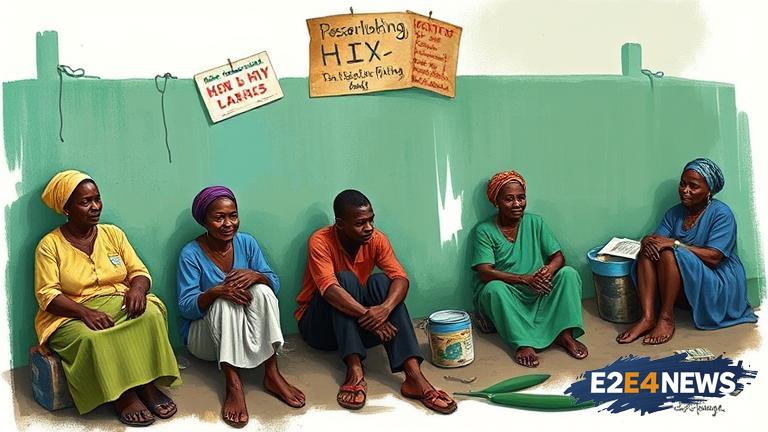The recent cuts in US aid to Suriname have had a devastating impact on the country’s HIV patients, with many struggling to find the medication they need to survive. The shortage has been particularly harsh on the most vulnerable members of society, including low-income individuals, sex workers, and those living in rural areas. Without access to antiretroviral therapy (ART), these individuals are at risk of developing AIDS, a condition that can be fatal if left untreated. The US aid cuts have also affected the country’s healthcare system, which was already struggling to provide adequate care to its citizens. The shortage of HIV medication has been exacerbated by a lack of funding, which has limited the government’s ability to purchase the necessary drugs. As a result, many patients have been forced to rely on alternative, often ineffective, treatments. The situation has been described as a ‘public health crisis’ by local health officials, who are calling for urgent action to address the shortage. The Surinamese government has been criticized for its slow response to the crisis, with many arguing that more could have been done to prevent the shortage. The US aid cuts have also had a broader impact on the country’s economy, with many businesses and organizations reliant on foreign aid to operate. The shortage of HIV medication has also raised concerns about the spread of the disease, with many fearing that the lack of treatment will lead to an increase in new infections. The most vulnerable members of society are often the most at risk of contracting HIV, and the shortage of medication has left them without the protection they need. The situation is particularly dire for sex workers, who are often stigmatized and marginalized, making it difficult for them to access healthcare services. The lack of access to HIV medication has also had a significant impact on the country’s LGBTQ+ community, who are disproportionately affected by the disease. Many have called for increased funding and support to address the shortage, including the provision of generic medications and the establishment of community-based healthcare programs. The international community has also been criticized for its response to the crisis, with many arguing that more could have been done to prevent the shortage. The shortage of HIV medication in Suriname is a stark reminder of the need for increased investment in global health initiatives, particularly in low-income countries. The situation also highlights the importance of addressing the social and economic determinants of health, including poverty, stigma, and discrimination. As the situation continues to deteriorate, it is clear that urgent action is needed to address the shortage and ensure that all individuals have access to the medication they need to survive. The Surinamese government, international organizations, and civil society must work together to address the crisis and prevent further suffering. The provision of HIV medication is a fundamental human right, and it is the responsibility of governments and healthcare providers to ensure that all individuals have access to the treatment they need. The shortage of HIV medication in Suriname is a wake-up call for the international community, highlighting the need for increased investment in global health initiatives and the importance of addressing the social and economic determinants of health.
